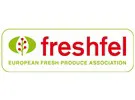As Brexit unfolds Freshfel Europe is closely monitoring the mounting impact on the fresh produce sector with extra costs already estimated at a total of €55 million. The EU-UK Trade and Cooperation Agreement is allowing the sector to continue trade across the Channel without duties or quotas, ensuring the competitive position of EU exporters in the UK and sufficient supply of fresh produce to the British market. The staged introduction of UK controls is also helping the sector to adapt to new border customs and phytosanitary checks. So far this has prevented the ‘worst case scenario’ of chaos and long queues at the EU-UK border affecting the quality of perishable trade.
However, the sector is already facing significant additional costs through the need for new operational procedures, inspections and bureaucracy. EU exporters are still struggling to adapt to new practices and requirements, for instance in relation to rules of origin to export and re-export to the UK. With the full flow of business operations still to come and the introduction of SPS certifications and controls expected in April and July, the full impact of Brexit is yet to be felt by the sector.
Maintaining business relations across the Channel is essential for both the UK and the EU27 despite the uncertainties resulting from the new Brexit environment. The EU27 export over 3.2 million tonnes of fresh fruit and vegetables to the UK on an annual basis, representing 40% of the UK’s internal demand. The sector is already facing additional costs due to Brexit amounting to approximately €400 euros per truck, an aggregated cost resulting from additional customs and related costs, such as fees for customs agents, as well as additional logistics/forwarding costs, and added internal administrative red tape.
This added cost also differs depending on the type of produce exported, with mixed consignments impacted most by additional bureaucracy, reaching up to €500 in costs per truck. Overall, the total annual increase of charges for EU fresh fruit and vegetable exports to the UK is estimated at €55 million, a cost that will ultimately be borne by UK consumers.
In April most EU fresh fruit and vegetables will require a phytosanitary certificate to enter the UK, with some Member States’ administrations taking up to 48 hours to issue paper documentation as progress in electronic transmission possibilities remains slow.
Freshfel Europe General Delegate Philippe Binard emphasized that, “While the situation at the border is currently stable the flow of trade is expected to suffer significantly from the introduction of SPS controls in the coming months impacting the ability to conduct ‘just in time’ operations”. EU exporters are also now required to provide certificates of conformity for marketing standards whose expedition takes up to 36 hours, although these are not requested by UK authorities upon import. The introduction of full SPS controls at the border and full customs declarations procedures in July will add further burden and costs to EU operators.
The EU and the UK must continue to work together to agree on more trade facilitation measures. Freshfel Europe Director for Trade Natalia Santos explained that this could include “the creation of Green Lanes for fast-track access of perishables and swift establishment of electronic transmission channels for phytosanitary and other certification”.
She added that: “The EU and the Member States must also step up efforts to streamline administrative processes for obtaining certificates and increase flexibility in export operations, for example by waiving the requirement for a certificate of conformity for marketing standards.”
On the UK side, more transparency is requested by the sector to access updated import requirements, related legislation and certifications, such as phytosanitary certificate templates and procedures for pre-notification. The fresh produce sector also needs more certainty about the UK’s capacity to conduct physical controls in July both at the UK border and at inland sites to avoid more delays and costs for the chain. The UK levels of physical checks should also reflect the very low phytosanitary risk of EU fresh produce exports.
 For more information:
For more information:
Freshfel Europe
Email: info@freshfel.org
www.freshfel.org
